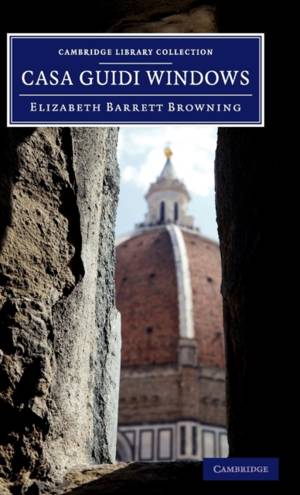
- Afhalen na 1 uur in een winkel met voorraad
- Gratis thuislevering in België vanaf € 30
- Ruim aanbod met 7 miljoen producten
- Afhalen na 1 uur in een winkel met voorraad
- Gratis thuislevering in België vanaf € 30
- Ruim aanbod met 7 miljoen producten
Zoeken
Omschrijving
In 1847, Elizabeth Barrett Browning (1806-61) moved with her new husband to an apartment in Florence, in the wake of perhaps the most famous literary courtship of the nineteenth century. She soon took to calling their home the Casa Guidi. From there, she observed the events of the early Risorgimento. It was at this time that she produced some of her finest work, including Aurora Leigh and Casa Guidi Windows. An impressionistic and thoroughly atypical landmark in the Romantic canon, the latter was written in two parts, separated by several years. Beginning with the memory of a singing child and a lush description of Florence's beauty, the first part explores the air of optimism that permeates both the city and the narrator. By the second, disillusionment is rife: Florence has become the scene of demonstrations and broken political promises. This reissue of the 1851 first edition includes Barrett Browning's own introduction.
Specificaties
Betrokkenen
- Auteur(s):
- Uitgeverij:
Inhoud
- Aantal bladzijden:
- 152
- Taal:
- Engels
- Reeks:
Eigenschappen
- Productcode (EAN):
- 9781108060387
- Verschijningsdatum:
- 9/05/2013
- Uitvoering:
- Hardcover
- Formaat:
- Genaaid
- Afmetingen:
- 140 mm x 216 mm
- Gewicht:
- 340 g

Alleen bij Standaard Boekhandel
+ 222 punten op je klantenkaart van Standaard Boekhandel
Beoordelingen
We publiceren alleen reviews die voldoen aan de voorwaarden voor reviews. Bekijk onze voorwaarden voor reviews.











